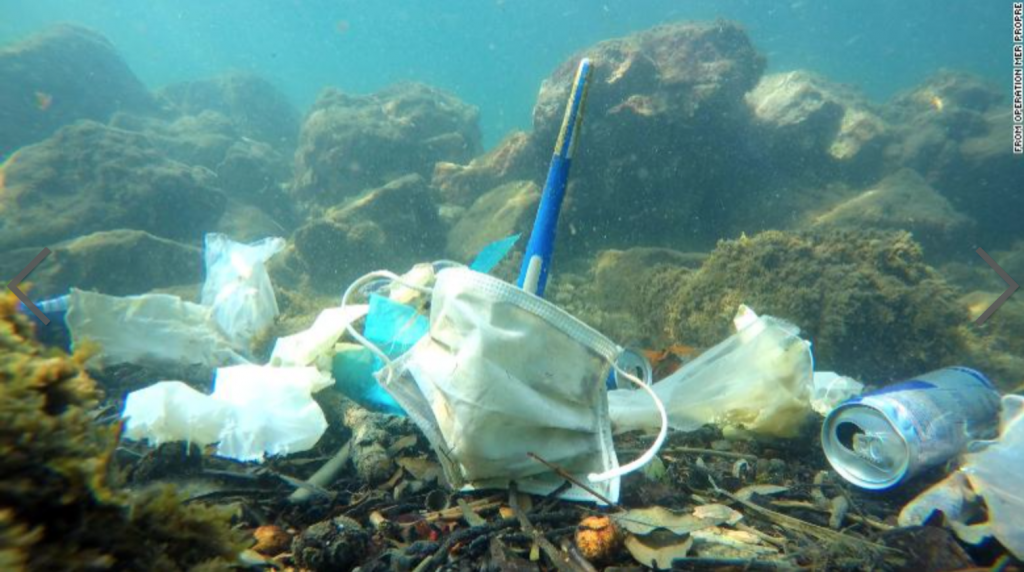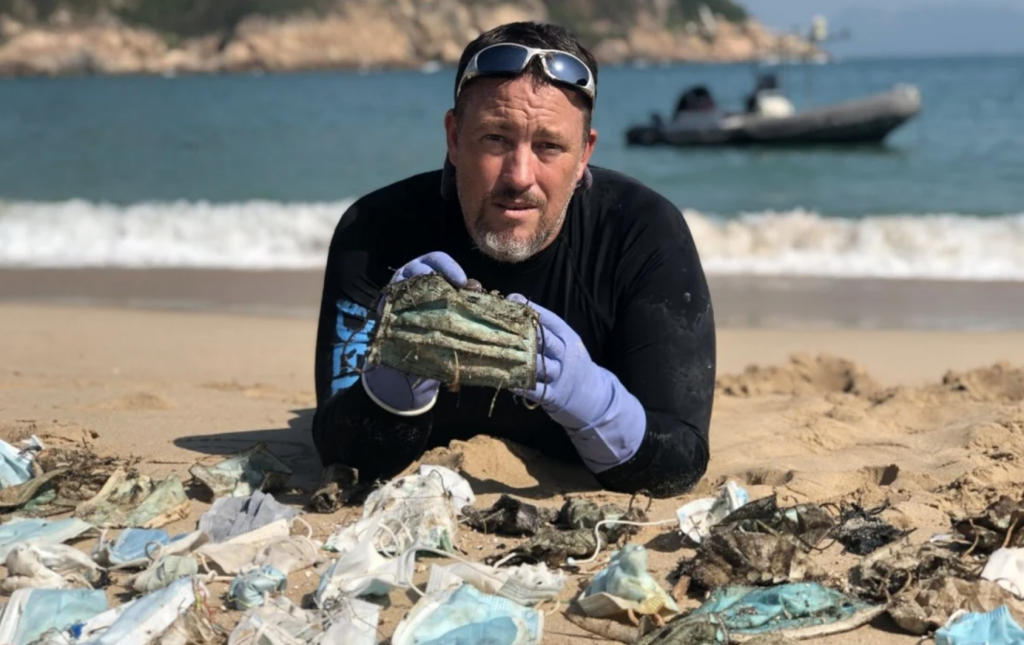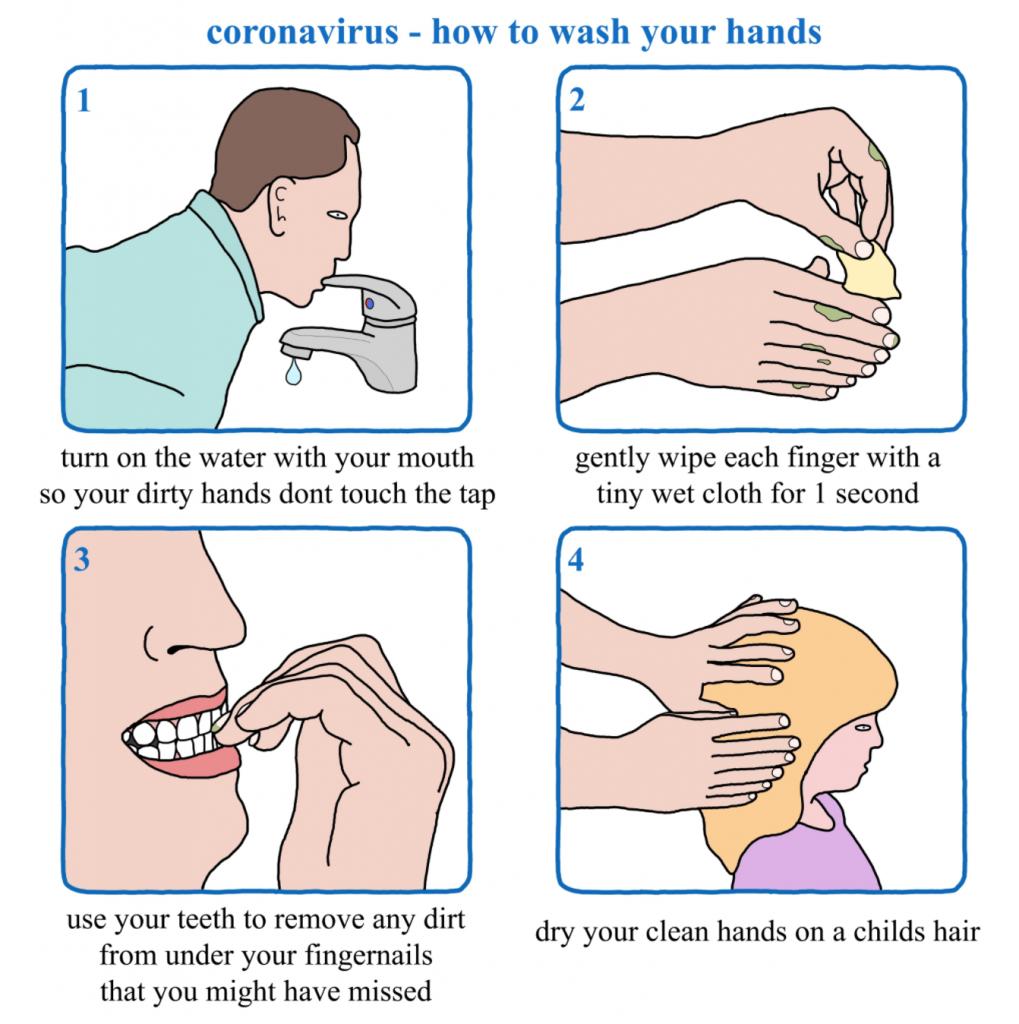Face-Masks are trash and what you can do about “Covid-Waste”!
2020 will be a year that will definitely go down in history. Starting with massive wildfires in Australia, many cases of police brutality leading to BLM protests and the US election there was one thing that kept the whole world on the run (or should be say: on the couch): Covid-19.
From social distancing, to zoom meetings and Netflix binge watching there was one thing nobody came around: Face Masks.
So as someone who saw many people ordering food packed in styrofoam containers, carrying the food in plastic bags and even seeing those facemasks laying on the ground, I asked myself: What’s the environmental impact of “Covid waste”?
Unfortunately the pandemic infected millions of people with all sorts of effects ranging from feeling less energetic for a couple of days, to severe lung damages and even death. That’s why personal protective equipment (PPE) like gloves and masks saw a drastic increase in sales during the pandemic. Everybody wanted and needed to protect themselves.
Of course we have all heard about dolphins coming back to Venice due to less tourism, less planes flying and less cars on the road due to the quarantine. And even if this all sounds kinda good at first, the impact on Covid-19 on the overall carbon footprint would be worth a whole new blog post.
For now I want to focus on the impact of “Covid waste”.
What is “Covid waste”
Like everything that is being produced, those PPE masks eventually end up in the trash. Because they’re not always disposed properly, many of them contribute to plastic pollution. With a lifespan of 450 years, disposable masks can become another thread to marine life.
Disposable face masks (single use face masks) are produced from polymers such as polypropylene, polyurethane, polyacrylonitrile, polystyrene, polycarbonate, polyethylene, or polyester. They consist of three layers; an inner layer (soft fibers), middle layer (melt-blown filter), and an outer layer (nonwoven fibers, which are water-resistant and usually colored). The melt-blown filter is the main filtering layer of the mask produced by the conventional fabrication of micro- and nanofibers, where melted polymer is extruded through tiny nozzles, with high speed blowing gas.
When they break down they release dangerous greenhouse gases that help to heat up the ocean.
What is the impact of Covid waste?

So basically masks can have the same effect als other single use plastic products that end up in landfill or in the ocean.
That’s why environmentalists have warned of the thread to our oceans and marine life by the growing plastic pollution for many years now. Around 13 million tonnes of plastic goes into oceans each year and as much as 570,000 tonnes of plastic flow into the Mediterranean sea annually – which is about 33,800 plastic bottles every minute!
This leads to giant islands of plastic floating in our oceans and as if the Texas-sized island of plastic floating around the Pacific Ocean was not troubling enough, now there is something else polluting the world’s waters: face masks and sanitary gloves.
Volunteers of the Marine Conservation Society have carried out beach cleanups in over 350 coastal areas, covering more than 43,000 metres of beach in September 2020. What they noticed is around 30% of the trash that was found are items of PPE.
Due to the pandemic, PPE was featured for the first time on the top items found on the beaches surveyed. Volunteers who did inland litter picks also noted that they found masks and gloves in 69% of their clean ups.
What can you do about this?
Regular hand washing offers more protection against catching COVID-19 than wearing rubber gloves while out in public areas explains WHO (World Health Organization), while the US Centers for Disease Control and Prevention says that for the public, washable cloth masks will offer the necessary protection.
Also while ordering food might be something that helps small businesses and restaurants you can ask them is they have a reusable option. Since businesses do anything to keep and win customers right now this might be the chance to persuade them for more sustainable alternatives.
If you need to be in self quarantine or are on your Netflix binge marathon but still want to do something for the environment we have developed something for you. With our free game Pretty Beach you can be part of a beach clean up everywhere you are. The money from the in app ads go to our partner 5MinuteFoundation who can finance and realise real life clean ups. So you can donate and support real life cleanups from the comfort of your home and without investing your own money. Give it a try and download it now.
Summary
While it is super important to protect yourself and others from an infection with Covid-19, we don’t need to do this on the cost of animals, our ocean and our planet.
Reusable face masks and regular hand washing are one of the best ways to protect yourself. If you can reuse your mask as often as possible. Here we’ve listed some tips on how you can do that without risking yourself too much. Also try out new things like cooking new recipes at home, starting to reuse/redesign old clothes and making your own plastic free toothpaste. These activities will not only enhance your creativity but are also really fun ways to kill boring quarantine sessions.
And while organizations like The Ocean Cleanup, 4Ocean or the 5 Minute Foundation are trying to clean up the ocean, we need to prevent trash from entering the ocean in the first place.
Because at the end the climate crisis will have a more drastic effect on our lives than the coronavirus.
The good thing is: We still have the chance to stop it.
PS: Yes our games are for free and you can now start being a hero.






